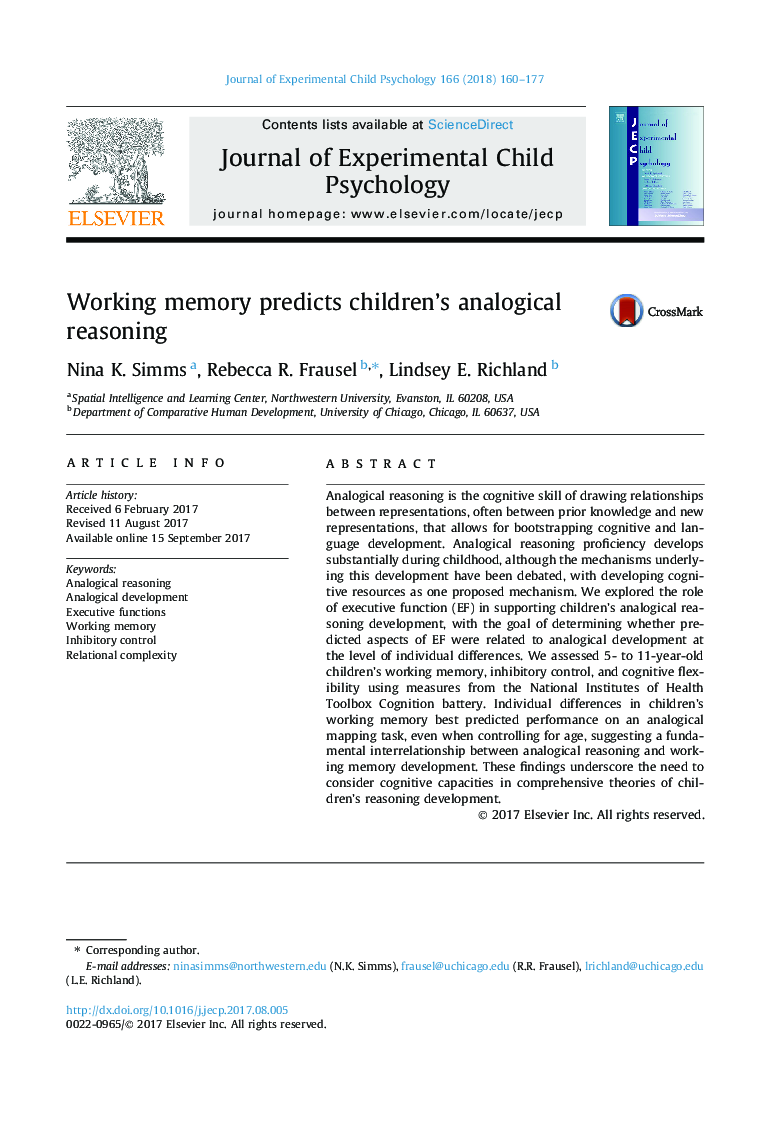| Article ID | Journal | Published Year | Pages | File Type |
|---|---|---|---|---|
| 5039862 | Journal of Experimental Child Psychology | 2018 | 18 Pages |
â¢Replicated developmental pattern in Richland, Morrison, & Holyoak (2006).â¢5- to 11-year-olds completed scene analogy task and executive function measures.â¢Individual differences in working memory predicted task performance.â¢This pattern remained even after controlling for age.
Analogical reasoning is the cognitive skill of drawing relationships between representations, often between prior knowledge and new representations, that allows for bootstrapping cognitive and language development. Analogical reasoning proficiency develops substantially during childhood, although the mechanisms underlying this development have been debated, with developing cognitive resources as one proposed mechanism. We explored the role of executive function (EF) in supporting children's analogical reasoning development, with the goal of determining whether predicted aspects of EF were related to analogical development at the level of individual differences. We assessed 5- to 11-year-old children's working memory, inhibitory control, and cognitive flexibility using measures from the National Institutes of Health Toolbox Cognition battery. Individual differences in children's working memory best predicted performance on an analogical mapping task, even when controlling for age, suggesting a fundamental interrelationship between analogical reasoning and working memory development. These findings underscore the need to consider cognitive capacities in comprehensive theories of children's reasoning development.
